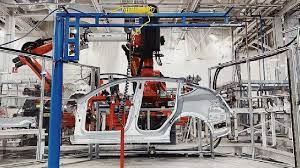
You are Here
- Home
- Industries
- Giga Presses – giant die casts revolutionizing the auto industry.


Economic Globe – Global Economic Journal
Global News, Breaking News, Economic, Business, Energy, Global Markets,
